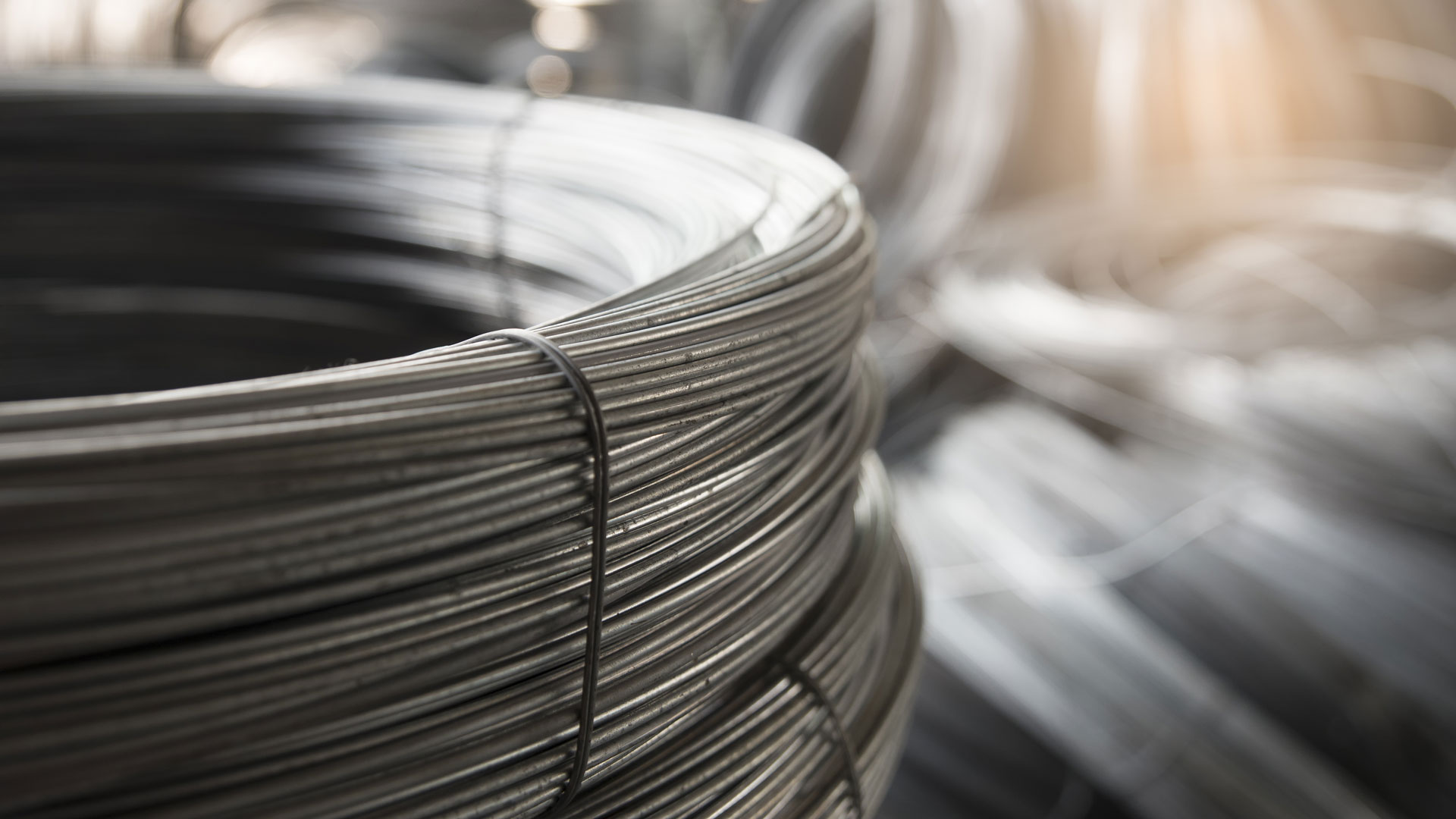
ASU researchers raising the quality of recycled steel
Support from REMADE Institute to accelerate the nation's transition to a circular economy

Above: Arizona State University researchers are developing an innovative process to manufacture high-quality steel wires from recycled iron feedstock in a project supported by the REMADE Institute, a public-private partnership established by the U.S. Department of Energy dedicated to helping the nation transition to a circular economy. Image courtesy of Shutterstock
Energy conservation and emissions reduction have received increased national and international attention since the COP26 climate conference last November. Industrial development and manufacturing are significant contributors to climate change, particularly in the United States where industry and its energy consumption are the largest greenhouse gas emitters.
To help reduce industry’s impact, researchers from the Ira A. Fulton Schools of Engineering at Arizona State University are developing an innovative process to manufacture high-quality steel wires from recycled iron feedstock.
“Steel is hard to decarbonize, and improving recyclability will impact this positively by reducing the most carbon-intensive step: iron ore reduction,” says Sridhar Seetharaman, vice dean for research and innovation in the Fulton Schools and a professor of materials science and engineering.
The work is funded by the REMADE Institute, a public-private partnership established by the United States Department of Energy and the first institute in the U.S. dedicated to helping the nation transition to a “circular economy” — a system in which materials are continually recycled and reused in an effort to reduce waste as much as possible.
“A circular economy is critical,” says REMADE Chief Executive Officer Nabil Nasr. “If we don’t reduce industrial energy consumption and industrial emissions, research shows we will only get a little more than halfway to net-zero by 2050, about 55% of the way. A circular economy approach to how we manufacture and use everyday products is needed to get us all the way to net-zero.”
Improving recyclability is one step forward on this path. While a vast majority of the steel in the U.S. is recycled, it is inferior in quality to “virgin” steel from freshly mined materials. Recycled steel often comes from automotive scrap, which contains copper impurities that cause cracking when reused. This can be a problem for certain steel applications, such as the wires used in tires to provide structural strength and support.
“Most wires for tires are, for this reason, produced with virgin iron, which is associated with a large carbon footprint,” Seetharaman says. “A successful outcome from this project will reduce the need for mining, extraction and production using virgin iron.”
Seetharaman is developing this process with Narayanan Neithalath, a professor of civil engineering whose research focuses on sustainable materials for buildings and infrastructure, and Subramaniam Rajan, a professor of civil engineering who works on composite materials and modeling.
“For iron and steel — critical materials for infrastructure — reducing their use, enhancing recovery and utilization from waste streams, and their use in high-value and high-volume applications such as tire manufacturing create large-scale impact beyond tires,” Neithalath says.
Since 2017, REMADE has launched or selected 84 projects, representing $85.6 million in funding. Seetharaman and Neithalath’s project has been allocated $1.25 million in funding that is cost-shared between REMADE and ASU.
At ASU, Seetharaman and Neithalath will conduct microstructure characterization, modeling and mechanical testing of the new recycled steel manufacturing process.
This work has the potential to impact the growing advanced manufacturing sector in the Phoenix metro area and beyond.
“New steel mill concepts of automated micro-mills are expanding in the Valley. The ability to process high residual scrap will benefit these mills,” Seetharaman says. “The economic impact will also benefit U.S. industry, which is largely based on scrap remelting. This allows for a new value-added product stream from a sustainable recycled and low-cost feedstock.”



































